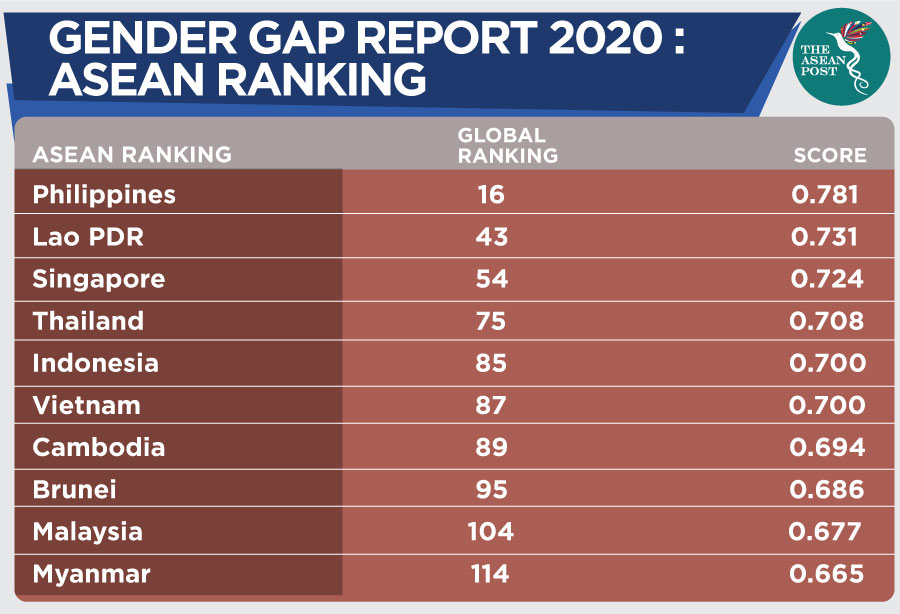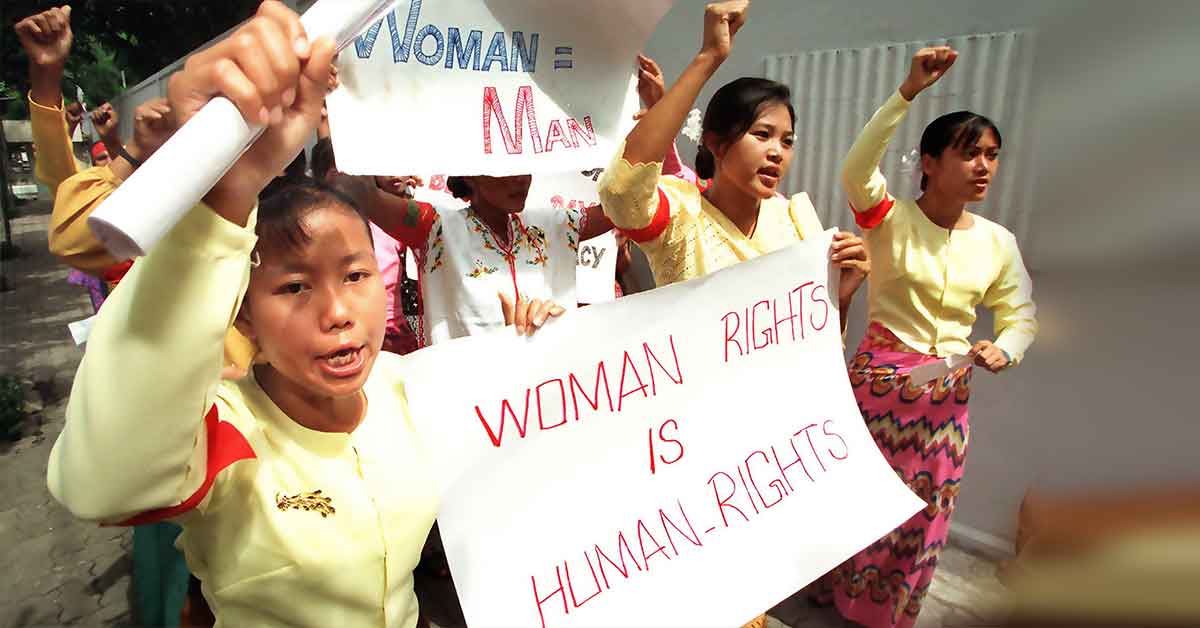Prominent women like Singapore’s President Halimah Yacob, Co-Founder of ride-hailing transport services Grab - Tan Hooi Ling and even sports legend, Nicol David have made headlines in the region for their tremendous achievements. A growing number of women today are participating in the male-dominated tech industry, politics, and sports, among other fields. However, the region still has a long way to go in terms of appreciating its women, valuing their contributions and treating them equally.
While there have been many women holding positions of power in Southeast Asia, female representation in the governments of many Southeast Asian countries is still lacking.
Despite the significant growth in its economy over the past decade, Southeast Asian women are still not getting their fair share of the acquired wealth. In an Asian Development Bank (ADB) study, it was found that on average, women earned 30 percent lower than their male counterparts. In Malaysia, the average male employee had a median salary of RM2,342 (US$560) a month while women made RM2,227 (US$530) according to the Statistics Department (DOSM)’s Salaries & Wages Survey Report in 2018. Whereas in Singapore, women earn six percent less than men for similar work.
In many cases, women still find trouble finding jobs. According to the ADB, “on average women are 70 percent less likely than men to be in the labour force. This gap persists despite economic growth, decreasing fertility rates, and increasing education.”

According to Malaysia’s Women’s Aid Organisation (WAO), women, especially mothers, face discrimination at work. According to a survey by the WAO, about 40 percent of pregnant women were discriminated by their employers. This includes making their positions redundant, denying them promotions, placing them on prolonged probation, demoting them, and terminating them.
The World Economic Forum (WEF) recently released its 2020 Global Gender Gap Report. The report assessed the rate of gender parity and concluded that it would take another 99.6 years before gender parity is achieved. In other words, there remains a 31.4 percent gender gap, globally.
Malaysia and Myanmar are among the worst performing ASEAN countries, ranking 104th and 114th, respectively. This puts both countries below a majority of Sub-Saharan African countries.
The WEF also estimates that East Asia and Pacific will take another 163 years to close the gender gap, the longest compared to any other region including the Middle East and North Africa.
It doesn’t just stop at the job market. Women constantly face the threat of violence in the form of sexual harassment, domestic violence and other types of abuse. Adequate laws in protecting women are still not in place in many countries in the region. For example, in Malaysia, marital rape is still not considered a crime. Meanwhile, according to the United Nations (UN), Southeast Asia has one of the highest rates of violence against women.
If Southeast Asia wants to be a developed region, then it needs to recognise the contributions that women make to its economy too. Women in the region deserve to be fairly compensated for their labour and be given the same opportunities men get in the job market. It doesn’t just stop there. Strong protections against violence and harassment needs to be set up too.
Today, women around the world will rally to achieve gender equality in conjunction with International Women’s Day. A few non-governmental organisations such as the WOA and Sisters in Islam in Malaysia have also teamed up to form a list of demands for their women’s march. The demands include banning child marriages and equal pay for work.
Governments need to listen to the concerns of their women and have enough political will to implement true reforms for a more equal Southeast Asia.
Related stories:
